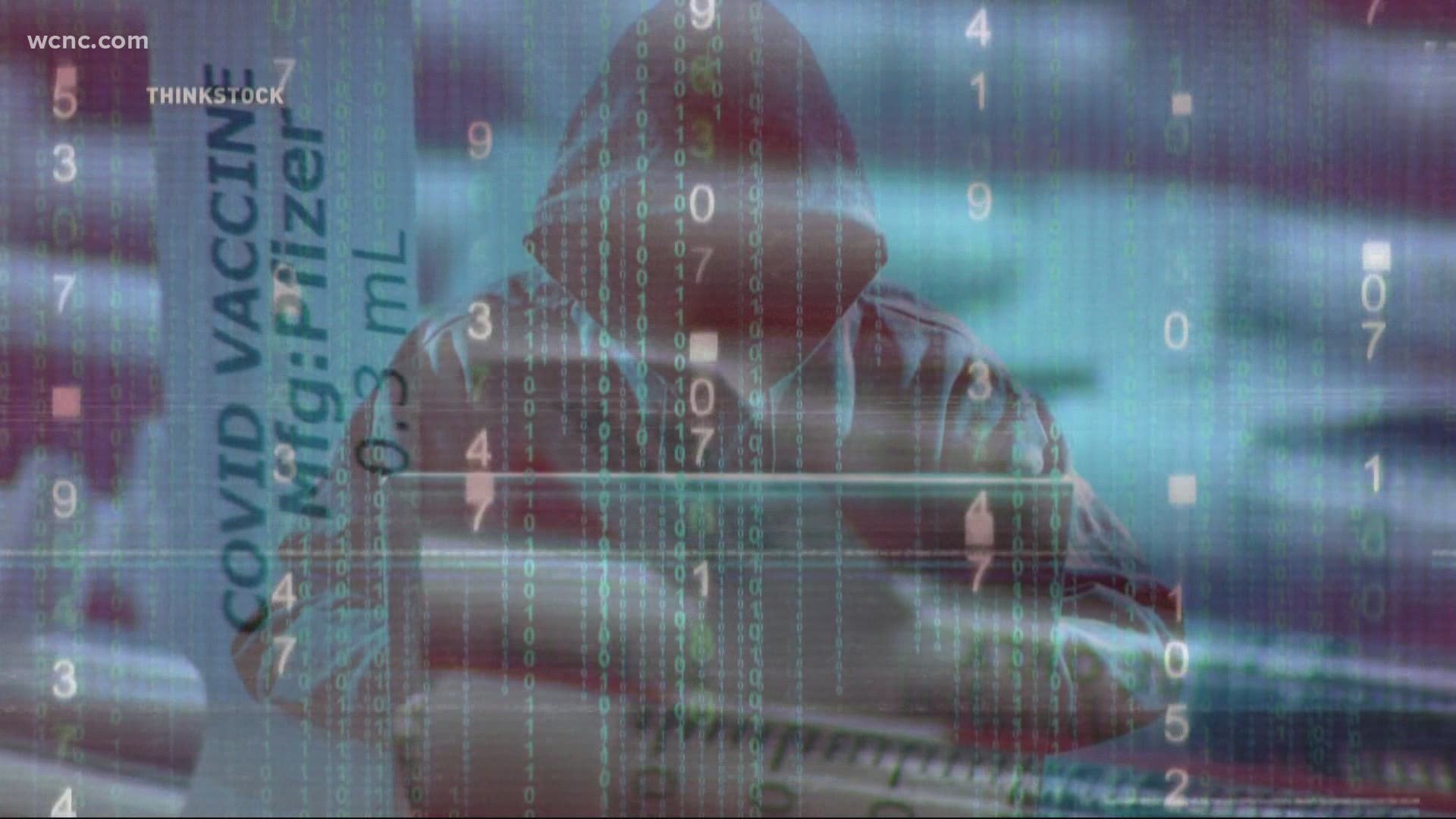CHARLOTTE, N.C. — Officials in the Carolinas are warning people to watch out for COVID-19 vaccine scams.
North Carolina Attorney General Josh Stein said the state is seeing more reports about vaccine-related scams now that the long-awaited vaccine is available.
“We’re at this moment where everyone is desperate to get that vaccine, and because of that desperation, the criminals will exploit it,” Stein said. “They will try to steal your money and personal information by promising they can move you ahead of the line or sell you a vaccine over the internet. They can’t do either of those things.”
The North Carolina Department of Health and Human Services (NCDHHS) has made it clear that the COVID-19 vaccine will be available for free, regardless of whether a person has health insurance.
Stein said no one can guarantee a person a spot on a vaccine waitlist or help a person get the vaccine early.
“The reason scammers pitch things that sound too good to be true is that people want to believe that, and they want whatever it is the scammers are promising,” Stein said. “But just realize that if it sounds too good to be true, it almost always is.”
Paul Bartholomy, vice president and general manager of the Better Business Bureau (BBB) of Southern Piedmont and Western N.C., said scammers are most commonly posing as a friend or health care worker and contacting people via phone calls, emails, and social media to tell them they are eligible for the Covid-19 vaccine.
But there’s a catch, Bartholomy said. The scammer will try to trick the victim into providing personal information or asking the person to pay upfront for the vaccine.
“Try to only deal with people that you know and trust,” Bartholomy said. “So, in these cases during the pandemic, that’s your health care provider, your physician.”
Bartholomy said some of the best scammers will create links to look like real government pages. He suggests people look to their local and state health departments directly for information about the vaccine and the procedure to receive it.
“Really what people need to be doing is guarding their personal information and avoiding giving away any type of money, unless they are absolutely sure what they are getting themselves into,” Bartholomy said.

